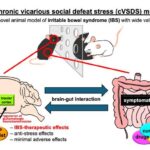The Vilcek Foundation Prizes in Biomedical Science raise awareness of immigrant contributions in the United States and foster appreciation for the arts and sciences. The Vilcek Foundation was established in 2000 by Jan and Marica Vilcek, immigrants from the former Czechoslovakia. Born in Slovakia, immunologist Jan Vilcek immigrated in 1965, with his wife Marica, to the United States to continue his career at New York University, where he would go on to pioneer the development of the life-saving drug Remicade (Infliximab).
The mission of the foundation was inspired by the couple’s respective careers in biomedical science and art history. Since 2000, the foundation has awarded over $7 million in prizes to foreign-born individuals and has supported organizations with over $6 million in grants.
The Vilcek Foundation Prizes recognize and celebrate immigrant leaders in biomedical science and biotechnology in the United States. This week, the Vilcek Foundation announced the recipients of the 2025 Vilcek Foundation Prizes in Biomedical Science. This year the foundation awarded $250,000 in prizes to Marianne Bronner, PhD, Elham Azizi, PhD, Guosong Hong, PhD, and Maayan Levy, PhD.
“Immigrant scientists bring a wealth of perspective and insight to their work in the United States, including alternative ways of viewing and approaching research questions,” said Vilcek Foundation President Rick Kinsel. “This creativity and ingenuity has led to important breakthroughs in biomedical research: from the development of noninvasive imaging techniques to reshaping our understanding of the molecular and metabolic mechanisms of disease. With the Vilcek Foundation Prizes, we celebrate immigrant scientists at the forefront of innovation, and raise awareness of the importance of immigration for scientific advancement.”
In 2025, the Vilcek Foundation awarded four prizes in biomedical science: The Vilcek Prize and three Vilcek Prizes for Creative Promise.
The Vilcek Prize
The Vilcek Prize recognizes a biomedical research scientist whose career work represents a significant contribution to their field and to scientific research and medicine more broadly. The recipient of the Vilcek Prize receives a cash award of $100,000 and a commemorative trophy. The foundation is delighted to award the 2025 Vilcek Prize to Bronner.
Bronner is a developmental biologist at Caltech, where she is the Edward B. Lewis Professor of Biology and the director of the Beckman Institute. She received the Vilcek Prize in Biomedical Science for her career research on neural crest stem cells and their role in the development of the peripheral nervous system, heart, and craniofacial skeleton in vertebrate organisms. A member of the National Academy of Sciences, Bronner is an advocate for gender equity in science. Born in Hungary, Bronner emigrated to the United States with her family as a young child.
The Vilcek Prizes for Creative Promise
The Vilcek Prizes for Creative Promise are awarded to early- and mid-career biomedical scientists whose work has had a significant impact on their field of study. Using interdisciplinary approaches, these scientists are advancing biomedical research in ways that have profound implications for our ability to understand, diagnose, and treat disease. Creative Promise Prizewinners each receive a commemorative trophy and an unrestricted cash award of $50,000.
The Vilcek Foundation is proud to announce that Azizi, Hong, and Levy are the recipients of the 2025 Vilcek Prizes for Creative Promise in Biomedical Science.
Azizi received the Vilcek Prize for Creative Promise in Biomedical Science for her research engaging machine learning, statistics, genomics, and bioengineering to derive principles of cancer initiation, progression, and response to immunotherapies in cancer patients. Born in Iran, Azizi is an alumna of Sharif University of Technology and of Boston University, where she earned her MS and PhD. She is an associate professor of cancer data research and biomedical engineering at Columbia University.
Hong received the Vilcek Prize for Creative Promise in Biomedical Science for the development of novel neuroengineering tools combining materials science and biology that engage ultrasound, light, and radio-frequency-based interfaces to study the brain. Born in China, Hong is an alumnus of Peking University; he earned his PhD in chemistry from Stanford University, where he is now an assistant professor of materials science and engineering.
Levy received the Vilcek Prize for Creative Promise in Biomedical Science for her immunological research studying the potential therapeutic applications of metabolites as vehicles and targets to prevent and treat diseases, including cancer. Born in Israel, Levy earned her BSc at Tel Aviv University and holds a PhD from the Weizmann Institute of Science. Levy recently joined the Stanford University School of Medicine as an assistant professor of pathology.



